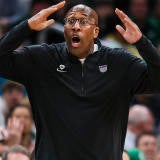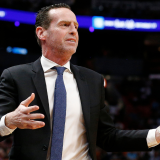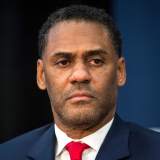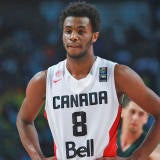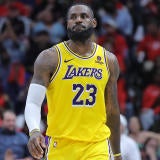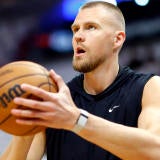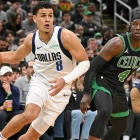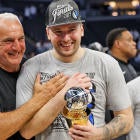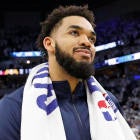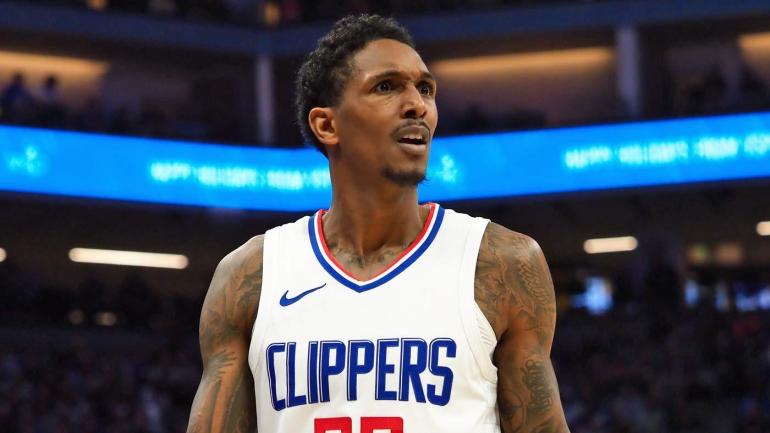
First, the bad news from Lou Williams' sojourn to, a, well, strip club during his excused absence from the NBA's Orlando bubble.
Williams will miss games during his forced 10-day quarantine. Thursday night's matchup between the Lakers and Clippers will miss out on the perennial Sixth Man Of The Year, dulling ever so slightly the return of the regular season. And the temptation of those surely scrumptious lemon pepper wings has served up instead a wake-up call to just how easily a player -- well-meaning or otherwise -- can jeopardize the carefully-laid plans of a professional sports league aiming to stay running during this global pandemic.
Surely, here, we could insert a joke, or some judgment, or a quip or two about the temptations of the real world impinging on the need to socially distance even from those things one might be drawn toward. But in Williams' mistake rests a bigger takeaway, one highlighted Monday by Major League Baseball.
The fact remains that the agreement by the NBA and the union to function in a bubble gives the league an enormous advantage over Major League Baseball and, in the not-too-distant future, the NFL.
We have seen a fairly large number of players leaving the bubble for nebulously phrased personal reasons, and Williams' decision to venture where he should not have during one such absence smacks more of human nature than wanton selfishness. People want what they want, and with COVID-19 it takes only a moment's lapse in judgment to suffer consequences out of scale with a night out, hanging with friends, a great batch of wings or, even, some time with the ladies.
That's why a bubble is imperative. It's not just the virus it has a chance of containing. It may also protect from the consequences of human nature.
We don't know how the virus first found its way into the Marlins organization. We do know nine players on the team's 30-man roster -- and 14 total people within the team's traveling party -- have tested positive. That's stranded Miami in Philadelphia, postponed two games, and put professional baseball on unsteady ground just a few games into its season.
Two weeks ago, I asked Los Angeles Dodger Joc Pederson if you could truly trust nearly 1,000 people in Major League Baseball to follow the protocols laid down over the course of a 60-game season when there is no possible way to monitor all of them away from the ballpark.
"That's a huge part of it," he told me. "Unfortunately, it could take one person that doesn't follow the protocols or quarantine-type strict schedule that could ruin it for everyone. We're supposed to go to the field and go home, and ask our families to do the same thing.
"The way I see it is," Pederson said, "you either, one, stay quarantined because you care about your safety and the people around you, which seems pretty respectful and normal. But if you don't believe in that, if it does get messed up, and you play for the money, you don't get paid if we don't play. And the third one is if you play for a World Series ring, or just love baseball, you don't play if you don't quarantine. So there are three valid reasons to take it seriously."
It's not hard to imagine Williams, or another NBA player, making that error in judgment, unknowingly carrying the virus into an NBA locker room, and waking up to headlines about spreading infections, postponed games and a season teetering toward another postponement or cancellation -- if, like MLB, they were on their honor over and over when not at the arena.
A bubble protects against that. That's why the NBA season plows forward Thursday with real optimism, and baseball currently feels very uncertain very, very early in the process of returning. If the question is, "To Bubble Or Not To Bubble," the answer is self-evident.
So yes, Williams made a mistake and acted in a way that runs the risk of jeopardizing more than his own infection-free status. What Pederson said is true: It also jeopardizes a chase for a championship, the opportunity to play at all, and all the money that comes with it. For everyone.
The difference is the bubble, one that if early indications hold true -- from the National Women's Soccer League, MLS, NHL and the NBA so far -- bode well for those sports taking this extra, drastic, disruptive step. And that bodes much less optimistically for leagues like MLB and the NFL that have chosen to believe they can dodge the virus despite the travel, proximity that comes with play and the natural inclinations of people to ignore the rules.
Lou Williams screwed up. Yes. But he also showed how impressive the NBA bubble plans have so far turned out to be.







